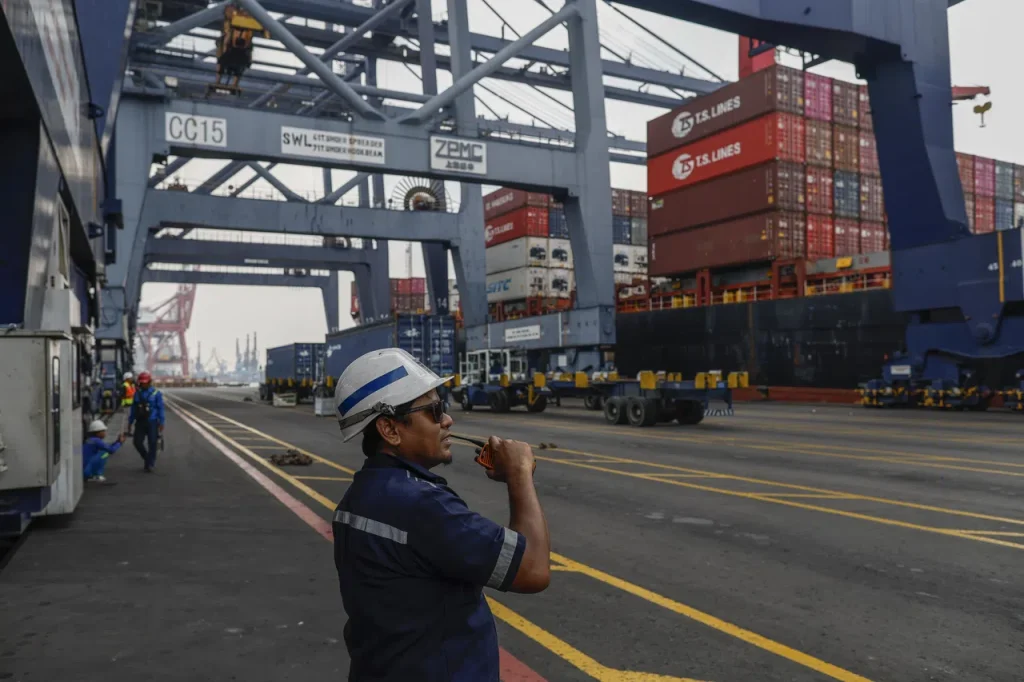[JAKARTA] Indonesia’s central bank is expected to resume monetary easing after holding its rate unchanged for three consecutive meetings, moving to bolster economic growth against the backdrop of rising tariffs and trade policy uncertainty.
Economists predicted a quarter-point reduction in Bank Indonesia’s benchmark rate to 5.5 per cent by the end of the second quarter, according to the latest Bloomberg survey. They see a further 25-basis point cut in the third quarter, which will lead the terminal rate to 5.25 per cent towards the year-end.
Consumer inflation could also be more moderate than expected. The headline gauge is projected to be 1.8 per cent for the second quarter, lower than the earlier forecast of 1.9 per cent, which should pare down the full-year print to 2 per cent from 2.1 per cent.
The planned 32 per cent US tariffs on Indonesian goods prompted economists to lower economic growth forecasts this year to 4.8 per cent from 5 per cent previously.
“Key downside risks to growth could stem from the implementation of the higher-band reciprocal tariff on Indonesia after the current 90-day pause”, said Lloyd Chan, strategist at MUFG bank.
The Indonesian government is currently negotiating with Washington to avert the tariffs that are seen to hit the exports sector.
A NEWSLETTER FOR YOU

Friday, 8.30 am
Asean Business
Business insights centering on South-east Asia’s fast-growing economies.
In an early warning sign of the tariff fallout, a measure of Indonesian manufacturing activity fell to its lowest since 2021, with factories cutting production and jobs in April.
Indonesia has pledged to increase its energy and agriculture imports from the US, as well as increase cooperation for the supply of critical minerals in the trade talks. Still, the government underlined it will put forward national interests as the US pushes for Indonesia to deregulate investments and ease market access.
The Indonesian rupiah fell to an all-time low against the US dollar last month, triggered by a selling spree in global financial assets as an impact of rising trade frictions around the globe.
“The rupiah, already near its lowest level since the Asian financial crisis, may come under additional pressure, and potentially require further intervention by Bank Indonesia,” said Ahmad Mobeen, senior economist at S&P Global Market Intelligence. BLOOMBERG


